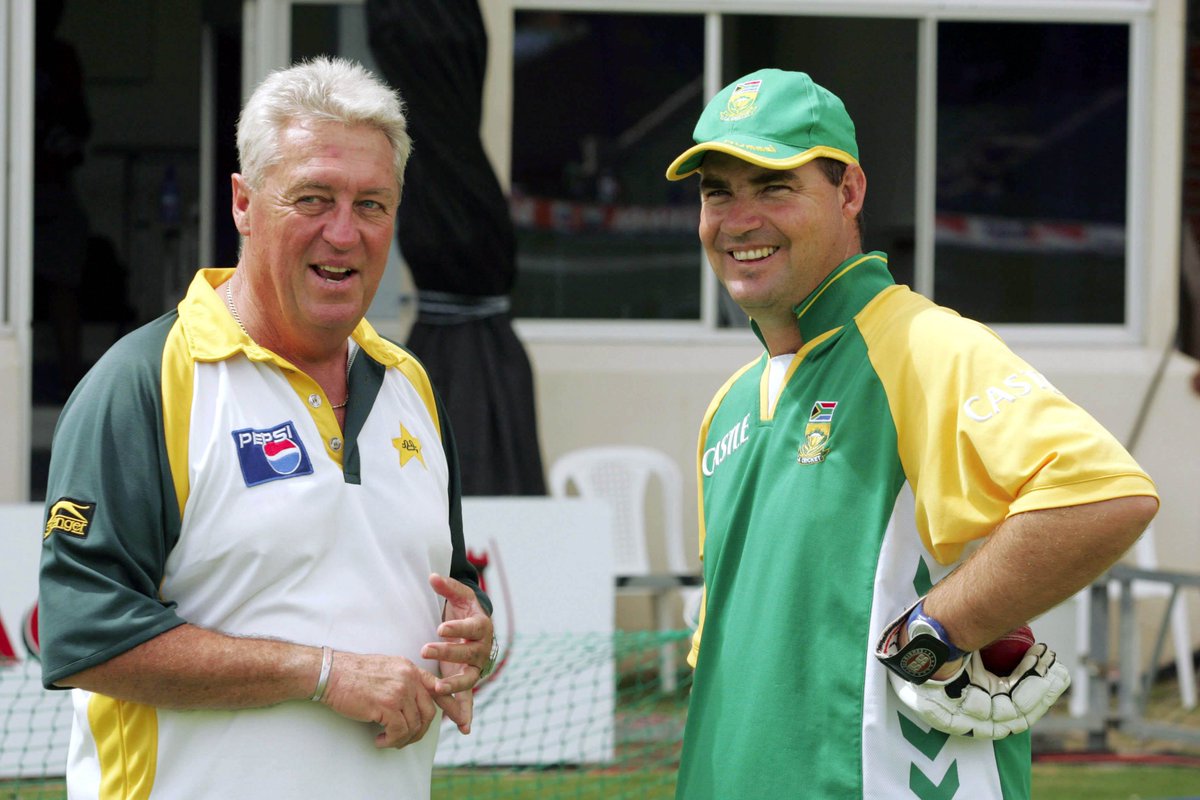Bob Woolmer was an influential figure in international cricket, celebrated for his achievements as both a player and a coach. His innovative approach to coaching and remarkable contributions to cricket have left a lasting impact on the sport worldwide.
Quick Bio
| Attribute | Details |
|---|---|
| Full Name | Robert Edward Woolmer |
| Date of Birth | May 14, 1948 |
| Place of Birth | Kanpur, India |
| Date of Death | March 18, 2007 |
| Nationality | English |
| Profession | Cricketer and Coach |
| Batting Style | Right-handed |
| Bowling Style | Right-arm off-spin |
| Major Teams Played For | Kent, England |
| Coaching Roles | Pakistan National Team, South Africa National Team, Zimbabwe National Team |
| Known For | Innovative coaching techniques and strategic thinking |
Early Life and Background

Born on May 14, 1948, in Kanpur, India, Bob Woolmer grew up in a family that valued both academics and athletics. His parents encouraged him to pursue intellectual development alongside physical activity, which helped shape his analytical approach to cricket. From a young age, Woolmer displayed exceptional talent in the sport, balancing his academic pursuits with a deep passion for cricket. His early environment fostered discipline and curiosity, qualities that later defined his coaching philosophy and leadership style.
Age and Physical Appearance
Bob Woolmer was known for his tall and athletic build, standing approximately 6 feet 3 inches. His height and presence made him a notable figure on the cricket field, while his physical fitness allowed him to compete at high levels well into his later career. Over the years, he maintained a professional demeanor, combining his commanding appearance with intelligence and strategic thinking. Woolmer’s age milestones highlight his steady progression from a talented young player to a respected international coach until his death at the age of 58.
Education and Early Interests
Woolmer’s education played a pivotal role in shaping his cricketing career. He attended prestigious schools where he excelled academically while honing his skills in cricket. Beyond the sport, he was fascinated by science, strategy, and sports psychology, which he often applied to his game. Early on, he showed interest in mentoring younger players, experimenting with coaching methods, and studying analytical approaches to cricket. These interests eventually became central to his innovative coaching style.
Cricket Career Beginnings
The professional journey of Bob Woolmer began with his debut for Kent County Cricket Club, where his all-round capabilities were immediately recognized. Woolmer quickly established himself as a reliable player, showing consistency with both bat and ball. His early performances demonstrated not only skill but also a deep understanding of cricket’s tactical aspects. Even in these formative years, he began guiding younger teammates, foreshadowing his eventual career as a renowned coach.
Peak Playing Career
Bob Woolmer reached the peak of his playing career in the 1970s, representing England in Test matches and One Day Internationals (ODIs). Known for his right-handed batting and off-spin bowling, he contributed significantly to England’s successes during his tenure. Woolmer played in numerous memorable matches, earning recognition for his precise technique and tactical insight. Beyond statistics, his leadership qualities and ability to analyze opponents set him apart as a player who thought several steps ahead.
Transition to Coaching
After retiring from professional play, Bob Woolmer transitioned to coaching, motivated by his desire to develop cricket at an international level. He believed in a holistic approach, combining physical training, mental conditioning, and strategic innovation. Woolmer’s philosophy emphasized analyzing opponents, encouraging creativity in players, and using technology to enhance performance. This forward-thinking methodology distinguished him from other coaches of his era and made him a sought-after mentor worldwide.
Coaching Career Highlights
Woolmer’s coaching career was marked by international success. He served as head coach for teams including South Africa, Pakistan, and Zimbabwe, achieving notable milestones with each. Under his guidance, Pakistan reached the 2007 Cricket World Cup final, demonstrating his ability to inspire teams and implement advanced strategies. He was admired for his focus on player development, tactical planning, and creating a positive team environment. Woolmer’s influence extended beyond victories; he modernized coaching standards across the cricketing world.
Challenges and Controversies
Despite his achievements, Bob Woolmer faced significant challenges during his career. Coaching high-pressure teams sometimes led to controversies and misunderstandings, yet he remained committed to his principles. He dealt with team politics, expectations, and media scrutiny with professionalism. Woolmer’s approach was often ahead of its time, and while not always understood immediately, his methods ultimately influenced modern coaching techniques. He also navigated cultural differences while coaching international teams, proving his adaptability and resilience.
Personal Life and Relationships
Outside cricket, Woolmer had a rich personal life. He was married and had children, with whom he shared a close and supportive bond. Family and friends often described him as warm, approachable, and intellectually curious. In cricketing circles, he built strong relationships with players, mentors, and fellow coaches, including his notable influence on younger talents. Woolmer’s personal relationships reflected the same dedication and empathy he brought to the sport, making him both respected and beloved by peers and family alike.
Legacy and Impact
The legacy of Bob Woolmer continues to resonate in cricket today. His innovative coaching techniques, strategic insights, and dedication to player development set new benchmarks in international cricket. Players, teams, and fellow coaches remember him as a visionary who advanced the professional standards of the game. His contributions helped shape cricket into a more analytical and competitive sport, and his influence can still be seen in contemporary coaching practices.
Death and Tributes
Bob Woolmer passed away unexpectedly on March 18, 2007, during the Cricket World Cup. His death shocked the cricketing world, and tributes poured in from all corners, including players he had coached and colleagues who admired his work. The international cricket community remembered him not only for his tactical genius but also for his warmth, mentorship, and dedication to the sport. Memorials and honors continue to celebrate his life and contributions to cricket.
Conclusion
Bob Woolmer remains a celebrated figure in cricket history. From a talented player to a visionary coach, his life exemplified dedication, intelligence, and innovation. His impact on English and international cricket is enduring, influencing generations of players and coaches. Woolmer’s story is one of passion, strategic brilliance, and a deep love for the sport, making him an unforgettable legend in the cricketing world
FAQs
Who was Bob Woolmer?
Bob Woolmer was an English cricketer and international coach, known for his strategic innovations and player development.
What teams did Bob Woolmer coach?
He coached Pakistan, South Africa, and Zimbabwe, achieving notable success in international tournaments.
What was Bob Woolmer’s playing style?
He was a right-handed batsman and right-arm off-spin bowler, known for consistency and tactical insight.
When did Bob Woolmer pass away?
Bob Woolmer passed away on March 18, 2007, during the Cricket World Cup.
Why is Bob Woolmer considered influential?
He revolutionized coaching techniques, emphasized analytics, and shaped modern cricket strategies.
For More Latest Update genius.com.in
